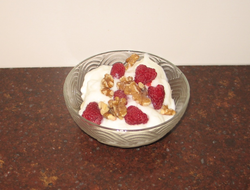Phytosterols and health
Published: July 06, 2018
For more than a decade foods fortified with phytosterols have been appearing on the shelves of many supermarkets, grocery stores and natural health product stores.
Research suggests that foods fortified with phytosterols, provide health benefits.
But what are phytosterols and how do they benefit your health?
The term sterol is given to an array of lipid (fat) molecules with similar structural and chemical properties.
Various sterols are found in both plants and animals.
Phytosterols are a group of lipids found in plants which have structural similarities to cholesterol which is a lipid that animals produce.
The health related interest in phytosterols primarily concerns their apparent ability to reduce the risk of heart disease in humans.
In particular, consumption of adequate amounts of phytosterols appears to lower LDL cholesterol (low density lipoprotein) which reduces the risk of heart disease caused by atherosclerosis.
Foods fortified with nutrients are referred to as functional foods.
Phytosterols
Phytosterols are a class of phytochemicals which are defined as plant derived non-nutrient compounds that are biologically active within your body.
There are more than 40 different phytosterols which include both sterol and stanol esters such as beta-sitosterol, campesterol, campestanol, and stigmasterol.
Beta-sitosterol is the most common phytosterol and accounts for approximately 50% of dietary phytosterols.
Its chemical composition is almost identical to that of cholesterol differing only in an ethyl group. Stigmasterol accounts for between 2-5% and campesterol about 33% of dietary phytosterols.
Not only do Phytosterols and cholesterol share similar chemical structures, but they also share similar physical and chemical properties such as:
These properties make phytosterols amenable to many conventional food processing procedures, such as pasteurization, high temperature short time (HTST), ultra-high temperature (UHT) and batch processing.
For instance, plant sterols...link to the full article to learn more.
References
1.
Whitney, E. & Rady Rolfes, S. (2005). Understanding Nutrition. Belmont, CA: Thomson Wadsworth
2.
Gropper, S.S., Smith, J.L. & Groff, J.L. (2005). Advanced Nutrition and Human Metabolism (4thEd.). Belmont, CA: Thomson Wadsworth.
4.
Center for Science in the Public Interest. Nutrition Action Health LetterApril 2011, May 2008, November 2012


